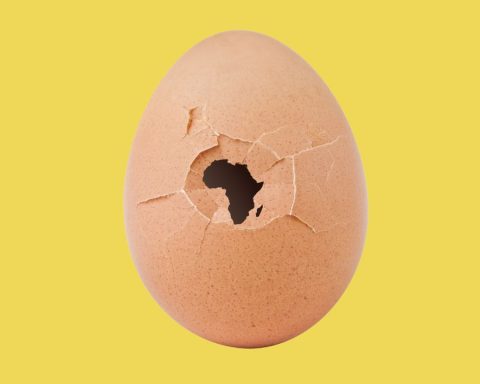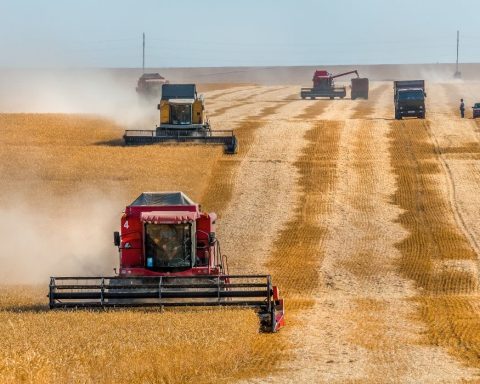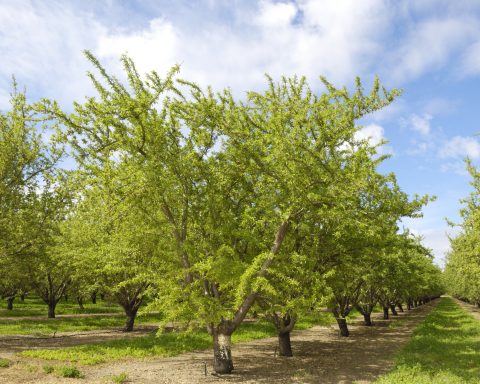When a tropical cyclone struck Madagascar in 2017, displacing thousands of people and damaging nearly a third of the island’s precious vanilla crop, McCormick & Co., the world’s biggest spice company and a leading buyer of Malagasy vanilla, supported the humanitarian efforts to provide emergency shelter, food and water. This isn’t unusual; global companies often help pay for disaster response in places where they do business.
What’s different is that McCormick stayed long after the waters receded, expanding its efforts to support vanilla farmers in Madagascar, one of the world’s poorest countries. Besides rebuilding primary schools and funding vanilla processing centres in remote communities, it helped create a farmer-owned cooperative, giving farmers more control over their crops. McCormick also teamed up with WWF to make sure vanilla is sustainably farmed, restoring riverbanks and training farmers on water conservation. In addition, the company provides interest-free loans and healthcare insurance to vanilla growers, in concert with the German foreign aid agency and Biovanilla, a local supplier.
All this is good for farmers, who have to make a living in good times and bad, and for the environment that sustains them. It’s good for McCormick, too, helping to assure the company of a long-term supply of vanilla, one of the world’s most popular flavours.
“Improving farmer livelihoods is a major priority,” says Lawrence Kurzius, McCormick’s chairman, president and CEO, who has broadened and deepened the company’s commitment to social and environmental responsibility since becoming its top executive in 2016.
Based in Hunt Valley, Maryland, a suburb of Baltimore, McCormick employs 12,000 people, booked US$5.3 billion in sales last year and sourced agricultural products from more than 80 countries. While other food companies like Ben & Jerry’s and Clif Bar may be better known for their work on sustainability, McCormick’s efforts are serious and wide-ranging, Kurzius explains during an interview over lunch at McCormick headquarters. Prepared by a corporate chef, the menu includes vegetarian “scallops” and a pan-seared North African–spiced rockfish, all of it well seasoned, of course.
McCormick’s approach to sustainability, which the company calls “purpose-led performance,” is embedded throughout the business, Kurzius says, and shapes its dealings with farmers, workers and the planet. “It’s not a program or a project,” he says. “It is a principle that underlies everything that we do.”
Under Kurzius’s leadership, McCormick named Michael Okoroafor as its first full-time vice-president of sustainability, set the company’s first science-based greenhouse gas reduction targets, made a major commitment to renewable energy, and transformed a telephone-company office building into a US$170 million LEED Gold–certified corporate headquarters.
All of this has helped McCormick to land a spot on Corporate Knights’ Global 100 Sustainability Index in each of the last four years and to be ranked first in the food products category for the fourth year in a row, ahead of such better-known companies as Unilever and Campbell Soup.
McCormick shareholders have also done very well. In the last five years, the company’s share price has more than doubled, while the S&P 500 Index has grown by about 35%, as of May 5, 2020. McCormick’s brands include Frank’s RedHot, French’s, Lawry’s, Old Bay, Thai Kitchen, Club House and Zatarain’s, as well as McCormick herbs and spices. Sales to consumers bring in about 60% of revenues. The remainder comes from sales to food and drink companies and restaurants; PepsiCo is its biggest customer, the company says.
Okoroafor is the face of the firm’s sustainability program. The youngest of four children, he was raised in a village in Nigeria, where his mother was a subsistence farmer and his father was a railroad worker. “My mom would farm from morning until night,” he recalls. She encouraged him to work hard, and Okoroafor earned scholarships to a Catholic boarding school, to the University of Nigeria and, eventually, to Michigan State, where he earned a PhD in polymer chemistry. His wife, Ngozi Okoroafor, also holds a PhD in chemistry.
Before arriving at McCormick, Okoroafor worked at Bausch & Lomb, PPG Industries, Coca-Cola and Heinz, accumulating more than 40 patents and helping to develop such innovations as the Coca-Cola PlantBottle, a recyclable PET bottle made partially from plants. His initial focus at McCormick was packaging – the company is seeking to ensure that 100% of its plastic packaging can be reused, recycled or repurposed – but he eagerly accepted the opportunity to work with farmers as well, which reconnected him to his own childhood. “Making an impact is what drives me,” he says.
“We need an enduring supply chain. If we don’t have anything to sell, we don’t make money.”
—Michael Okoroafor
McCormick’s work with farmers focuses on what it calls its five iconic ingredients: vanilla, red pepper, black pepper, oregano and cinnamon. Vanilla is by far the most complex, both in its flavour profile and in the process of cultivating and processing vanilla pods, which come from vine-like plants that wrap themselves around small trees. It’s labour-intensive work that requires patience and good timing: new vanilla vines take several years to mature and have to be pollinated, by hand, during the early-morning hours on the first day that the delicate orchid flowers bloom. Once harvested, bean pods are soaked in hot water at night and dried during the day for as long as a month. “The curing of vanilla is a fusion of art and science,” says Okoroafor. Madagascar produces about 80% of the world’s crop, because climatic and soil conditions are right, labour is cheap, and growing vanilla has become part of the culture.
In the wake of the 2017 cyclone, which hit during a worldwide vanilla shortage, the crops became so valuable that theft was rampant. Farmers also faced exploitation by middlemen, known as collectors, who offered them high-interest loans during the so-called lean season and underpaid them for what they grew. “The net effect is that the farmer is impoverished and the collector is driving a Mercedes,” Okoroafor says. Middlemen also mixed different grades of vanilla or bought premature vanilla to increase their profits, thereby degrading quality.
The risks to McCormick were clear. “We need an enduring supply chain,” Okoroafor says. “If we don’t have anything to sell, we don’t make money.”
With matching funds from USAID, McCormick and the National Cooperative Business Association’s international arm, NCBA CLUSA, organized a co-op of vanilla farmers in the Sava region of Madagascar. Farmers run the co-op and sell a substantial portion of their crop to McCormick. “You’re getting the buyer coming directly to the farmer,” says Jonathan White, director of private sector partnerships at NCBA CLUSA. “When that happens, more opportunities can flow down to the farmer.” Farmers get a fair price, advice about growing and harvesting, and the opportunity to certify their product as organic or fair trade if they choose.
McCormick can count on a steady supply of high-quality vanilla.
Even so, it does not want to become dependent on Madagascar, so it has tried to develop alternative sources of vanilla in Indonesia and East Timor, again working with NCBA CLUSA. Farmers at a well-established cooperative in East Timor called CCT have thrived by growing coffee, which they have sold to Starbucks since the 1990s, but they have begun to grow vanilla and cloves as well, to diversify their sources of income.
Other notable sustainability efforts at McCormick include a partnership with CARE, studying women’s contributions to spice farming. McCormick commissioned the development non-profit to do village-level surveys designed to find ways to improve the status of women producing vanilla in Madagascar, black pepper in Vietnam, red pepper in India and oregano in Turkey. The ultimate goal, the company says, is to recognize the contributions of women and empower them in tangible ways. Rahul Chandran, managing director of CARE consulting, says, “These are really complex issues. They are trailblazing for their sector.”
Internally, the company is also well on its way to meeting goals for diversity and inclusion. Women hold 49% of middle management jobs and 40% of senior management jobs, the company says in its sustainability report. It aims to get those percentages up to 50% by 2025.
Meantime, its climate footprint is shrinking. McCormick has been buying small amounts of solar energy since 2006 but stepped up its commitment last year by making a deal with Constellation, an electricity provider, to purchase solar energy to power its corporate headquarters, four manufacturing plants and distribution centres in Maryland and New Jersey. The initiative will help McCormick achieve its goal of cutting absolute carbon emissions from its own facilities from 2017 levels by 20% by 2025.
Kurzius says all of these efforts are good for business in multiple ways. “Sustainability is increasingly important to investors,” he says, particularly long-term institutional investors such as pension funds and insurance companies.
Corporate customers such as PepsiCo and Walmart also reward the company for its environmental practices. As well, those practices help attract and engage staff. “The best employees want to work for the good guy,” he says.
For Kurzius, there are personal rewards, too. He has been interested in the environment since growing up in Huntsville, Alabama, where he was president of his high school ecology club. An early Tesla buyer, he notes that the parking lot outside company headquarters is equipped with electric-car charging stations.
“I’d like to think this will be one of my legacies,” he says.
Marc Gunther is a veteran journalist, speaker, and writer whose focus is business and sustainability.





